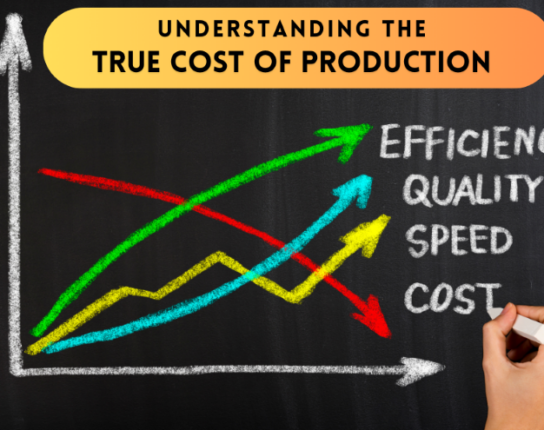In the food and beverage manufacturing sector, growth doesn’t just mean more sales; it often translates to managing more ingredients, complex recipes, compliance requirements, and expanded distribution networks. Both QuickBooks and Microsoft Dynamics 365 Business Central have earned recognition for their performance in managing business finances, but while QuickBooks has been a staple for small businesses, Business Central offers a robust solution that addresses industry-specific challenges. Here’s how the two measure up to the needs of your food manufacturing business.
QuickBooks: A Starter Pack for Small Businesses
QuickBooks is known for its simplicity. However, as a food or beverage manufacturer expands, the business may need more than QuickBooks can provide:
- Inventory Tracking: QuickBooks provides fundamental inventory management features which are often not comprehensive enough to handle the specialized needs of lot traceability, a critical function for businesses that need to meticulously track production batches from raw materials to finished goods.
- Costing Methods: While QuickBooks allows for basic item costing, it may not offer the nuanced costing capabilities required for detailed analysis of costs associated with individual items, especially in scenarios that demand an understanding of variances in material, labor, and overhead expenses.
- User Roles and Security: QuickBooks has weak user roles and security options. This often makes it too easy for unintentional mistakes to creep in or for users to inadvertently gain improper access to data.
- Audit Trails: QuickBooks has a simpler audit trail system, omitting details like logins/logoffs and modifications to master records. For businesses emphasizing stringent financial controls and data integrity, a more comprehensive audit trail might be preferable.
- Reporting Limitations: QuickBooks has a basic reporting system, which might be limited for businesses seeking detailed insights. This simplicity can pose challenges for those aiming for data-intensive decision-making.
- Data Volume Restrictions: Managing recipes, ingredients, batch numbers, and more can overwhelm QuickBooks, which has inherent limits on record processing and storage.
Business Central – Designed for Manufacturing Complexity
As businesses grow, so does the complexity of their operations and the demands on their accounting software, and this is where the robustness of Business Central comes into play:
- Enhanced Lot Traceability: Business Central facilitates a seamless transition to advanced inventory management with robust lot tracking capabilities. It enables manufacturers to implement mock and actual recalls efficiently, providing critical traceability from ingredient acquisition to final product distribution.
- Location-Based Inventory Management: Intuitive location-based inventory allows for the precise tracking of stock across multiple warehouses and locations. This granularity ensures that manufacturers can maintain optimal inventory levels and streamline their supply chain processes.
- Sophisticated Costing Analysis: Business Central elevates costing to a strategic level, offering real-time insights into inventory valuation. It encompasses true costing methods, including direct and indirect expenses, to provide a comprehensive view of landed costs and overall product profitability.
- Unlimited Recipe and Ingredient Data: Track every detail, from raw materials to finished products, without data constraints.
- Enhanced Transaction Handling: Process bulk orders, manage extensive supply chains, or handle increased sales volume. Whether you’re processing a few hundred or over a thousand transactions monthly, Business Central handles it with ease.
- System Capacity and Scalability: Business Central promises high system capacity and scalability. Built on the Microsoft Azure platform, it’s designed to handle increasing users and transactions, accommodating growth seamlessly.
- Cloud-Based and Open Architecture: Securely operating in the cloud has numerous advantages, ensuring businesses have their data at their fingertips, safely stored, and easily retrievable.
- Advanced Accounting and Operations Functionality: Business Central is not just accounting software; it’s an integrated financial management system. From tracking client information and warehouse management to handling logistics and employee administration, it offers an all-in-one solution.
- Technology Advancement and Integration: Integration is the name of the game. With Business Central, businesses can enjoy the platform’s native integration with the entire Microsoft suite, including Power BI, Outlook, and Excel. This removes silos, streamlines processes, and enhances productivity.
- Comprehensive Reporting: Integration with PowerBI also means reporting is no longer a chore. The platform allows businesses to generate ad hoc reports based on various dimensions, ensuring that insights are tailored to specific needs.
- Compliance: Compliance and audit controls are essential to preventing fraud and loss for your business, e.g. QuickBooks does not comply with GAAP, while Business Central does.
The Scalability Effect:
One of the most significant advantages of Business Central is its forward-looking approach. Built on a platform that’s continually evolving, it ensures businesses are always at the cutting edge of technological advancements, and as you expand, every aspect, from sales to inventory, remains interconnected and streamlined.
Perhaps the most compelling argument for Business Central over QuickBooks is the sheer breadth of its features. Boasting over 800 features that QuickBooks lacks, it truly goes above and beyond, especially in scalability and reporting. Businesses can also leverage Microsoft AppSource, a vast repository of apps that integrate seamlessly with Business Central. As your needs evolve, find an app that matches those needs, ensuring you always have the right tools at your disposal.
Taking the Leap
Scaling a business comes with its share of challenges. Your accounting software shouldn’t be one of them. While QuickBooks might serve as a starting point, Business Central is equipped to handle the intricate challenges of the industry, ensuring businesses are not just growing, but thriving.
For food and beverage manufacturers, it’s not just about growth; it’s about ensuring quality, consistency, and compliance at every stage. Harvest Food Solutions is built for the food industry by food experts, and based on Microsoft Dynamics 365 Business Central. If you’re interested in finding out more about how Harvest brings the power of modern software and technology to the food & beverage companies of today, then let’s talk!










